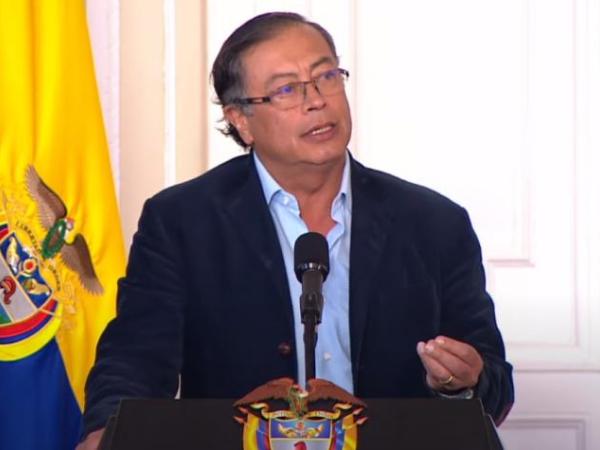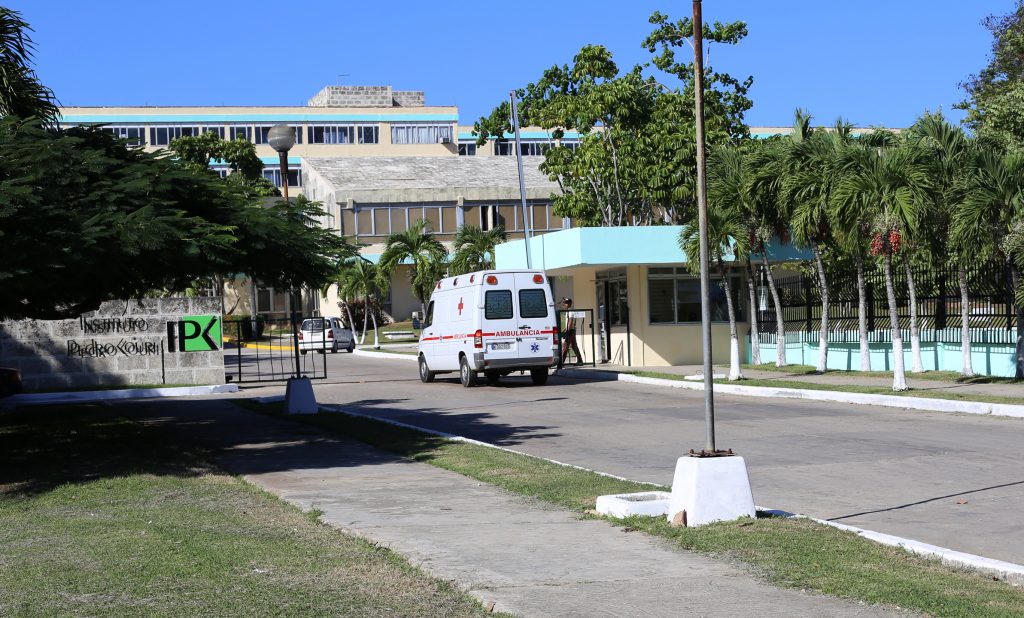This Wednesday, August 31, Invamer published the first survey that measures the level of approval with which Gustavo Petro began as president of Colombia. Likewise, it measures the favorability of personalities and institutions in Colombia and the opinions of society on current events.
(Read: Connectivity and fiber optics, priorities of the Petro government).
Similarly, the acceptance of citizenship regarding laws, proposals or statements of the moment.
In principle, the president begins his government with 56% approval of his management versus 20% disapproval.
Among the other leaders who were measured is the mayor claudia lopez, with 54% disapproval and 41% favorability. In the case of Jaime Pumarejo, mayor of Barranquilla, his management is approved by 59%, 37% disapprove.
In the case of Daniel Quintero, mayor of Medellín, 53% approve and 42 disapprove. On the Bucaramanga side, the work of Juan Carlos Cárdenas is approved by 35% and disapproved by 54%.
Finally, the work of the mayor of Cali, Jorge Ivan Ospinais approved by 33% and disapproved by 61% of those surveyed.
Daniel Quintero, Mayor of Medellín, and Claudia López, Mayor of Bogotá.
EL TIEMPO and Bogota City Hall
Invamer also measured the opinion of the public regarding the Vice President Francia Marquezwho reported a 54% favorable image and 18% unfavorable.

Gustavo Petro and Francia Marquez
EFE
The main problems for Colombians
Colombians surveyed when asked “Do you think things in Colombia are getting better or worse?”, 48% responded that it is getting worse compared to 33% who were optimistic.
(Also: Diego Bautista, new president of the Rural Development Agency).
For 38% of those surveyed, the main problem that the country currently has is the unemployment/economy; 19% consider that this is public order and security; 18% said that corruption and 17% said that others.
Along with this, 80% of those consulted assured that the cost of living in Colombia is getting worsewhile 12% stated that it is improving.
Respondents also answered some questions regarding the Petro government’s proposals. As to reestablish relations between Colombia and Venezuela, 70% agreed and 18% disagreed. Likewise, 62% consider that relations between the two countries will be more “prosperous and respectful”, while 34% think the opposite.
About the interest that the government returns the lands to the peasants displaced by the violence, 72% stated that they agreed and 23% that they did not. Along with this, on whether there are guarantees in Colombia to make a democratic opposition: 48% agree and 42% do not.
(See: The response of peasants to the request to evict occupied farms).
Citizens were asked about approval of this statement as well: “Sacrificing part of justice to negotiate peace“. 51% said they disagreed and 43% agreed.
favorability of institutions
Military forces
57% favorable; 37% unfavourable.
businessmen
51% favorable; 38% unfavourable.
The Catholic Church
50% favorable; 42% unfavourable.
Police
54% unfavorable; 42% favorable.
The JEP, Special Jurisdiction for Peace
44% favorable; 44 unfavourable.
unions
43% favorable; 43% unfavourable.
The media
55% unfavorable; 39% favorable.
The congress
66% unfavorable; 25 favourable.
The political parties
76% unfavorable; 15% favorable.
COMPANY THAT CARRIED OUT THE SURVEY: INVAMER SAS
NATURAL OR LEGAL PERSON WHO ORDERED IT: INVAMER SAS, for sale by subscription. FUNDING SOURCE: own resources of INVAMER SAS
OBJECTIVES: to measure the approval of the President and the favorability of personalities and institutions in Colombia. Know the public opinion on current events. Evaluate the opinion that people in general have of Colombia and of President Gustavo Petro Urrego. To measure the concept of people facing current Colombian problems. Observing the level of acceptance of the people with respect to laws, proposals or affirmations of the moment. Carry out a general evaluation in the main cities of the country on the work of the respective mayor and the way in which people are perceiving their city.
UNIVERSE: men and women aged 18 or over, of all socio-economic levels, residing in: Bogotá (5,479,011), Medellín (1,813,155), Cali (1,374,126), Barranquilla (810,019) and Bucaramanga ( 390,351), for a total of 9,866,662 people, according to the 2018 Census.
SAMPLE FRAME: cartography of cities to select people. The coverage of cartography in the 5 large cities is 95%. The number of blocks in the cartography are: Bogotá 39,103, Medellín 13,329, Cali 13,707, Barranquilla 7,783 and Bucaramanga 4,716 for a total of 78,638.
SIZE AND DISTRIBUTION OF THE SAMPLE: 1,200 personal surveys distributed as follows: Bogotá 400 surveys, Medellín 200 surveys, Cali 200 surveys, Barranquilla 200 surveys and Bucaramanga 200 surveys. To adjust the total sample to the real size of the universe of each city, weighting factors are applied.
SAMPLING SYSTEM: a probabilistic sampling by stages was carried out, first a systematic random selection of households and then a simple random selection of a person aged 18 or over.
MARGIN OF ERROR: the margins of error within 95% confidence limits are: for the total sample of the 5 cities +/- 2.83%; for the total sample of Bogotá +/- 4.90%; for the totals of the samples of Medellin, Cali, Barranquilla and Bucaramanga +/-6.93%.
DATA COLLECTION TECHNIQUE: personal surveys in the household of the respondents (CAPI).
DATE OF DATA COLLECTION: from August 20 to 28, 2022.
NUMBER OF INTERVIEWERS: 25.
VALIDATION METHOD: 100% of the surveys carried out were reviewed and 15% of them were supervised.
TOPICS REFERRED TO: public opinion on rulers, personalities, institutions and current events. PERSONS OR INSTITUTIONS FOR WHICH THE QUESTION WAS INQUIRED: refer to the questionnaire.
SPECIFIC QUESTIONS ASKED: refer to the questionnaire.
WEIGHTING FACTOR:
It is the figure that, acting as a multiplier, allows the sample data to be taken to the population, that is, to expand the sample.
The weighting factor was calculated by dividing the percentage of the universe of the variables age range and socioeconomic level over the percentage of the sample for the same variables. The weighting factor indicates the number of sample units that each respondent represents to be proportional or representative of the universe.
The universe used in this weighting factor was taken from the results of the 2018 National Population and Housing Census.
BRIEFCASE
















